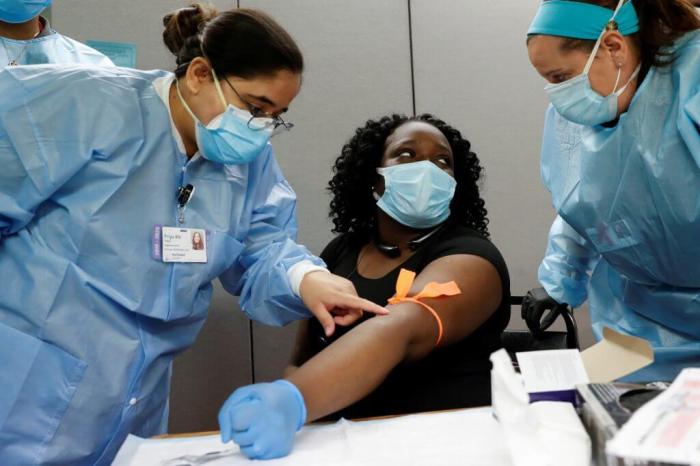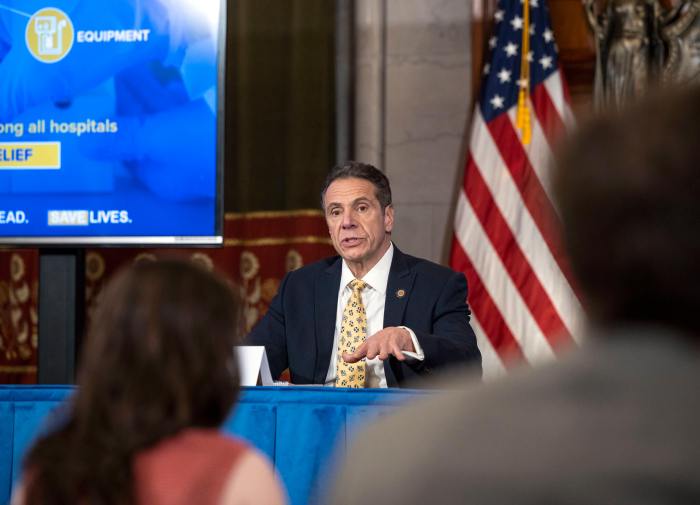The automated system for generating a driver’s license in New York requires the applicant to identify as either male or female on the application form, and the resulting license will identify its holder as either male or female. A person who identifies as non-binary is faced with a dilemma when applying for a license: They can’t check the male or female box on the form without misrepresenting their gender.
Sander Saba, caught in this dilemma, filed a lawsuit against Governor Andrew Cuomo and Department of Motor Vehicles (DMV) Commissioner Mark Shroeder last summer, claiming that this system violates their constitutional rights. The defendants moved to dismiss the case as moot, claiming they were fixing the problem. On April 23, however, US District Judge Lewis J. Liman rejected their argument and refused to dismiss the case.
Saba was born in New York and has been able to obtain a revised birth certificate showing their gender as X rather than M or F, as they requested. Saba was residing in Pennsylvania when they obtained their driver’s license, which also identifies their gender with an X. But upon moving back to New York, they had to obtain a New York driver’s license, or they would be considered an unlicensed driver after 30 days residing in the state.
According to Saba’s Complaint, the Form MV-44 that an applicant for a license must complete requires the applicant to designate themselves as male or female and does not provide the third option — “X” — that has been available in New York for birth certificates since 2019 and is available from the federal government for Social Security purposes but not yet for passports, which is under litigation.
Saba sent a letter to the DMV commissioner’s office on May 26 of last year asking how they could get a New York driver’s license with an X gender marker, or alternatively asking whether DMV’s current policy prohibits non-binary residents from obtaining such a license. On July 7, Brandon Flynn, a DMV employee, called Saba and confirmed that DMV would not issue a license without an M or F gender designation because of the way the computer system was set up. Flynn told Saba that they were in the process of “updating” the computer system, but, according to Judge Liman’s summary of the Complaint, “could not state whether this process would result in an option for an “X” gender marker for New York issued licenses.”
Lambda Legal then filed the lawsuit on behalf of Saba against Cuomo and Shroeder, claiming that the current policy violates Saba’s First and 14th Amendment rights. Responding to the lawsuit, the DMV offered to let Saba submit an application without making a gender designation, and they would have it manually processed and produce an “X” license for Saba.
However, in order to assign a motorist identification number (MI) that is necessary to identify the driver in DMV’s electronic database, DMV would itself assign a binary identification to Saba under which their information would be catalogued, because the algorithm by which the MI numbers are generated requires a gender designation of M or F. The DMV database is not used solely for internal departmental purposes. It is also accessed by the police, banks, and insurance companies. Thus, anybody who accessed the database for information about Saba would see what Saba contends is an inaccurate statement of their gender.
Furthermore, if a police officer were to access the database, they would see a discordance between Saba’s gender in the database and as shown on the license, raising doubts about the license’s validity. DMV offered to provide Saba with an official letter that would explain should Saba encounter that sort of situation.
This offer by the DMV did not persuade Saba to withdraw the lawsuit, so the defendants filed a motion to dismiss, claiming that their offer rendered the lawsuit moot because they were willing to give Saba what Saba was seeking: a driver’s license with an “X” gender designation.
Judge Liman concluded that based on the facts alleged in Saba’s complaint and the representations made by DMV Deputy Commissioner Gregory Kline in support of the motion to dismiss, the case is not moot. Kline pointed out that in fact money had been allocated to DMV to replace their old computer system with a new one, although Kline later amended his statement to indicate that instead they were going to modify the existing system. Either way, the computer system would eventually be able to accommodate a third gender designation. Estimates varied as to how long that would take, although it seemed likely that it would not be fully in place until sometime in 2022.
The judge pointed out that the dispute is not moot so long as the current application form and system remains in place, and that offering the “X” license without altering the DMV database means that the potential constitutional problems (freedom of expression, due process liberty, equal protection) with the current system are not completely addressed. Mootness means that there is no longer a basis for a constitutional claim, and the defendants failed to prove that. Indeed, at this point, they have not proved anything; they just made representations to the court to try to get the case dismissed.
Judge Liman pointed out that despite the statement in Cuomo’s State of the State document released earlier this year that he had directed DMV to “implement a policy change for correcting gender markers on New York State driver’s licenses consistent with DOH’s policy, including making available a non-binary gender marker on driver’s licenses,” until the implementation takes place, the problem will not be cured. (The reference to DOH — the Department of Health — is to the change made in 2019 so that transgender and non-binary people could get new birth certificates consistent with their gender identity.)
The judge wrote that “the future change does nothing to sufficiently address the current alleged harm.” Even if Saba gets the driver’s license they sought, the DMV database would still contain an inaccurate identification of their gender, so an important adverse effect of the challenged policy would remain.
“By Defendants’ own representations,” wrote Liman, “the system currently in place will not permit DMV, through automated process, to accommodate Plaintiff’s demand not to have to elect a binary gender. If the license DMV has offered Plaintiff were to expire tomorrow, DMV could not and has not offered any assurance that Plaintiff would not again be confronted with the allegedly unconstitutional Application.”
Normally, a constitutional claim will be considered moot when the challenged policy is changed, not based on representations that it will be change in the future. Thus, it is possible that the violation of constitutional rights will recur in the future if the change does not take place, so the ability of the court to issue a declaratory judgment and injunction will still have meaning now. The courts recognize a “voluntary cessation doctrine” under which a governmental unit whose practice is challenged as unconstitutional may voluntarily change the policy, making the case moot, but in this instance what DMV has offered to do does not change the underlying policy or eliminate its effects until some indefinite time in the future. A subsequent administration could decide not to make the change, since it is not embodied in a statute or regulation.
Judge Liman thus denied the mootness claim, but he did conclude that Saba’s demand for monetary damages for violation of their constitutional rights was barred by 11th Amendment immunity. New York government officials may not be sued in federal court for damages for their past actions under the doctrine of sovereign immunity. On the other hand, the court can declare that the policy in place violates the Constitution and may enjoin its future operation.
The defendant’s motion did not take any position on the question of whether the existing policy is unconstitutional. It was focused on the claim that the case was moot and that in any event the 11th Amendment barred relief against the defendants. Judge Liman was careful not to indicate any opinion about whether Saba’s constitutional claims are valid, since that question was not raised by the motion.
Judge Liman was appointed by President Trump in 2019. Lambda Legal attorneys Carl S. Charles and Omar Gonzalez-Pagan represent Saba, together with cooperating attorneys from the law firm of O’Melveny & Meyers, LLP. Governor Cuomo and Commissioner Shroeder are represented by Andrew S. Amer of the New York State Department of Law.


































